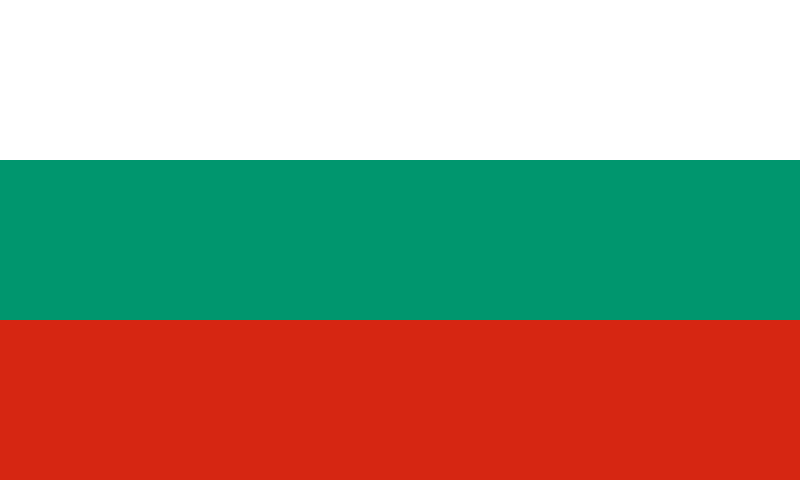Statistical Data for Bulgaria
Bulgaria, also designated by the Bulgaria ISO country code BG, is a country in Southeastern Europe that shares borders with Greece and Turkey to the south, the Black Sea to the east, Romania to the north, and Serbia and North Macedonia to the west. With the Balkan Mountains cutting through the middle of the country, its varied topography consists of plains, mountains, and coastline. With scorching summers and chilly winters, the climate ranges from continental in the interior to Mediterranean by the coast.
Bulgaria, boasting a high Bulgaria adult literacy rate, is one of the least densely inhabited countries in Europe, with a population of about 7 million. With lesser communities of Turks, Roma, and other minority groups, the majority of the population is ethnically Bulgarian. Concerns over future demographic trends, for example, in Bulgaria mortality rates are raised by the aging population and comparatively low birth rate. With more than two-thirds of the population residing in cities, especially Sofia, the capital, and other significant metropolitan centers, Bulgaria life expectancy and urbanization is on the rise.
Land of Bulgaria
Bulgaria, a historical and culturally significant nation, is renowned for its varied landscapes and breathtaking natural beauty. Bulgaria provides a diverse range of geographical elements that make it a distinctive tourist destination, from the breathtaking Black Sea coast to the majestic Balkan Mountains. While the country's untamed mountains offer chances for outdoor pursuits like climbing and skiing, its lush valleys and fertile plains are perfect for agriculture.
With ancient ruins dispersed around the country, the archeological legacy of Bulgaria is among its most intriguing features. Bulgaria has been influenced by the Thracians, Romans, and Byzantines. Well-preserved sites like the ancient city of Plovdiv and the UNESCO World Heritage-listed Rila Monastery are open to tourists. Along with its historical relics, Bulgaria is home to energetic towns like Sofia, the capital, which combines modern buildings with ancient structures.
In summary, the varied landscapes, extensive history, and lively culture Bulgaria proposes make it an incredibly special place for tourists looking to experience a country that combines historical significance with scenic beauty. Bulgaria has something for every kind of traveler, whether they want to explore ancient ruins, unwind on the beach, or hit the slopes in the winter.
Climate of Bulgaria
Because of its topography and geographic location, Bulgaria has a varied climate. Four distinct seasons, a hot summer, a frigid winter, a brilliant spring, and a moderate autumn, define the nation. The climate of Bulgaria is affected by its closeness to the Black Sea, which moderates coastal temperatures. Conversely, inland areas typically see more drastic temperature swings.
In Bulgaria, the summer months are usually hot and dry, with highs of over 30°C. In contrast, winters can be extremely cold, with lows below freezing and frequent snowfall in the mountainous areas. These seasonal changes not only impact the environment but can also influence the Bulgaria health profile, contributing to insights into the Bulgaria disease burden. As the flora and animals change with the seasons, spring and fall bring with them more pleasant temperatures and vibrant scenery. The climate of Bulgaria is a blend of continental and Mediterranean influences, creating a distinctive and varied setting that both locals and tourists may enjoy.
Languages of Bulgaria
With multiple languages spoken there, Bulgaria is renowned for its vast linguistic diversity. The majority of people in Bulgaria speak Bulgarian, which is the country's official language. Slavic languages like Russian and Serbian are closely linked to Bulgarian, a South Slavic language that utilizes the Cyrillic script. Bulgaria is also home to speakers of a number of minority languages, such as Macedonian, Romani, and Turkish.
A sizable section of the populace speaks Turkish, especially in regions where there is a sizable Turkish minority. Bulgaria is also home to many speakers of Romani, an Indo-Aryan language used by the Roma people. Furthermore, some parts of the nation, especially those bordering North Macedonia, speak Macedonian. The varied cultural legacy and the impact of its surrounding nations on its linguistic landscape are reflected in these minority languages.
Therefore, the languages of Bulgaria are a reflection of the country’s history and the various cultural influences that have changed its linguistic identity. Despite the fact that Bulgarian is the most widely spoken language, the existence of minority languages emphasizes its multicultural past and the significance of linguistic diversity in forming its sense of identity.
Demographic trends
Bulgaria current population statistics are being shaped by notable demographic trends. Insights from the Bulgaria health system profile highlight how this demographic shift places increasing demands on senior care and support services. This Bulgaria health statistics transition poses problems for the country’s social services and healthcare systems.
In conclusion, the Bulgaria demographics overview underscores common statistical patterns shared within the country and its population. These patterns can be used as a framework for decisions in social, economic, or policy contributions.
Bulgaria interesting facts
Bulgaria, a country in Southeastern Europe, with a distinctive culture and a long history. The fact that Bulgarian is the sole Slavic language to employ the Cyrillic script is an intriguing fact about the country. The Bulgarian scholars Cyril and Methodius invented this alphabet in the ninth century, and Bulgaria has been using it ever since. The traditional music and dance of Bulgaria, which have been acknowledged by UNESCO as a component of the Intangible Cultural Heritage of Humanity, are another intriguing facet of the country's culture.
Bulgaria is renowned for its varied landscapes in addition to its rich cultural legacy. Bulgaria provides a diverse array of natural beauty, ranging from the snow-capped summits of the Balkan Mountains to the sandy beaches of the Black Sea coast. Many unusual plant and animal species can be found in the wilderness, such as the Bulgarian rose, which is the source of the well-known Bulgarian rose oil. Hence, tourists wishing to see a nation with a rich history and dynamic culture will find Bulgaria to be an intriguing destination due to its unique facts.
